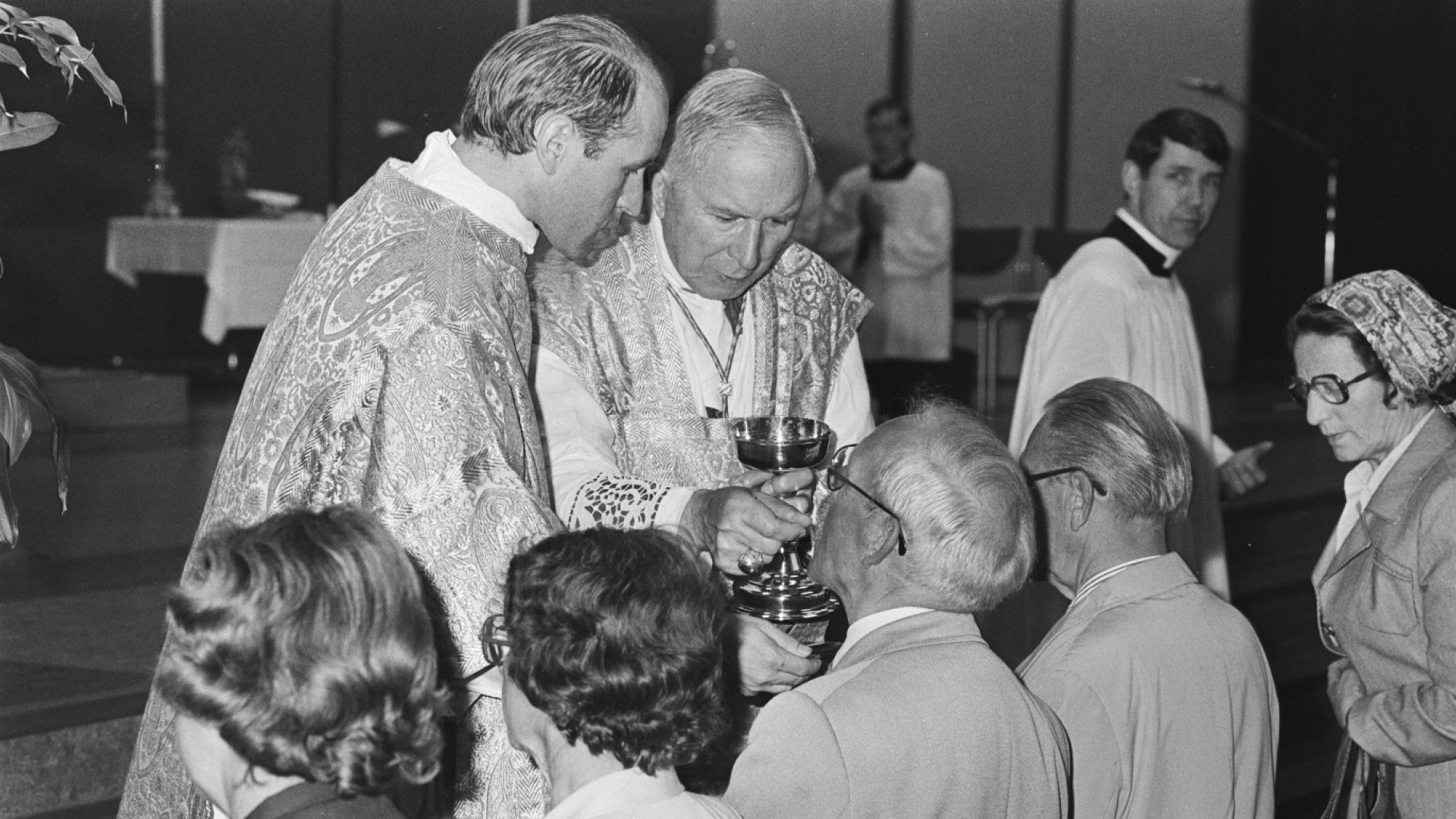Polish Doctors Challenge Ban on Communion on the Tongue

Back in May, 21 Austrian doctors wrote to the Austrian episcopal conference to protest against the ban on giving Communion on the tongue. Polish doctors are taking the same approach with their bishops.
On September 17, 27 German doctors took the same approach to the German Bishops’ Conference, claiming that there was “no medical reason to ban Communion on the tongue.” But the text has remained confidential. However, on September 19, Tagespost revealed its existence.
On October 7, 65 Polish doctors and professors published an open letter in the daily Nasz Dziennik, in which they asserted that receiving Communion standing and in the hand is more conducive to contagion than receiving it on the knees and on the tongue.
The signatories call on the Polish episcopate to review current guidelines for distributing communion during the epidemic. The authors also stress that it is precisely for reasons of hygienic safety that the sign of peace - which is achieved by a handshake - has been temporarily suppressed during masses celebrated in Poland.
The possibility of communion in the hand was not introduced in this country until 2005, and it has been little used. But with the onset of the pandemic, the bishops have generally encouraged it and, unfortunately, it became the norm overnight in the majority of Polish parishes.
Various associations protested against these measures. A retired Polish archbishop, former ordinary of Karaganda in Kazakhstan, Mgr. Jan Paweł Lenga (born in 1950) - for whom Bishop Athanasius Schneider was an assistant - strongly denounced this attack on the respect due to the Holy Eucharist. This Archbishop Emeritus, now residing in the Marianist Convent of Licheń in Poland, for several months has been celebrating Mass in the traditional rite.
Archbishop Lenga recalled that when the Catholic missionaries in the USSR (of which he was a part) left, in certain particular cases, the Blessed Sacrament to the faithful isolated geographically and deprived of the priestly presence for a long time, they never communicated directly to each other in the hand, but, with a deep reverence towards Our Lord, used spoons made of precious metals to distribute it.
Unfortunately, this deep reverence is disappearing with the trivialization of communion in hand. It is to be hoped that the Polish bishops will know how to heed this double warning. The first in the natural order, which asserts that the faithful will be better protected from contagion by the traditional mode of taking communion. And the second, that their faith and their love towards Jesus-Eucharist will be preserved by this same mode.
(Source : LifeSiteNews/source locale (WG) – FSSPX.Actualités)





